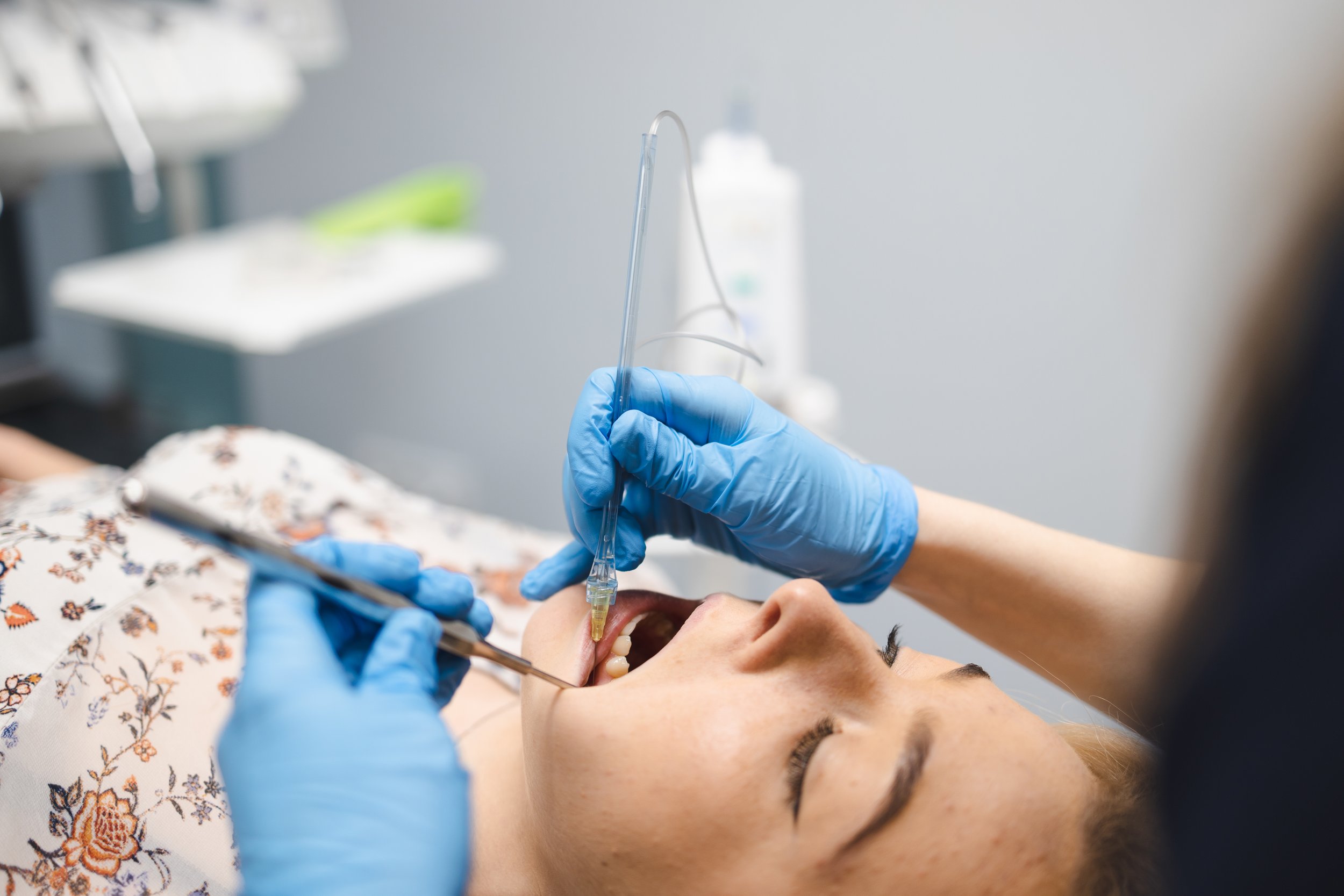How Dental Sedation Helps People with Gag Reflexes
Going to the dentist can be stressful for many, but for individuals with a sensitive gag reflex, it can feel nearly impossible. Something as routine as taking dental impressions or getting a cavity filled can lead to gagging, choking, or even panic. Fortunately, dental sedation is a safe and effective solution that can help patients with this issue receive the care they need without fear or discomfort. In this article, we’ll explore how dental sedation works, why it helps those with strong gag reflexes, and what options are available to make your next dental visit more manageable.
Understanding the Gag Reflex
The gag reflex is a natural response intended to protect the throat from foreign objects. It’s triggered when something touches the soft palate, the back of the tongue, or the throat area. For most people, this reflex is only activated during specific situations, such as swallowing large pills or when brushing too far back on the tongue. But for others, even a dental mirror touching the inside of the mouth can cause an overwhelming gag reaction.
While a sensitive gag reflex isn’t necessarily a medical problem, it can seriously interfere with oral health. Patients may avoid cleanings, x-rays, or necessary dental procedures out of fear or discomfort, which can lead to worsening dental issues over time.
How Dental Sedation Can Help
Dental sedation refers to the use of medication to help patients relax during dental procedures. It ranges from mild relaxation to full unconsciousness, depending on the type and dose of sedative used. For patients with a strong gag reflex, sedation can make all the difference in their ability to receive treatment comfortably.
Here’s how sedation helps:
1. Reduces Sensitivity to Triggers
Sedation dulls the body’s response to physical stimulation. This means that areas of the mouth that would normally cause gagging—like the back of the throat or the roof of the mouth—are less reactive when under sedation. The body is simply more relaxed and less likely to trigger the reflex response.
2. Lowers Anxiety
Anxiety can heighten the gag reflex. When a person is nervous or anticipates discomfort, their body becomes more tense and reactive. Sedation dentistry helps calm the nervous system, reducing not just the reflex itself but also the fear that contributes to it. Patients are more relaxed and less likely to fixate on the possibility of gagging.
3. Allows for Efficient Treatment
With sedation, the dentist can often perform more work in one session, since the patient is comfortable and still. This is especially helpful for individuals who previously had to break appointments into multiple shorter visits due to gagging or anxiety.
Types of Sedation Used for Gag Reflex
There are several types of dental sedation that can be used, depending on the patient’s needs and the severity of their gag reflex. Your dentist will help determine the best option based on your medical history and level of anxiety.
1. Nitrous Oxide (Laughing Gas)
This is the most common and mildest form of sedation. The gas is inhaled through a mask, and it induces a feeling of relaxation within minutes. It helps reduce sensitivity and allows patients to remain awake and responsive while minimizing the gag reflex.
2. Oral Sedation
Oral sedation involves taking a prescribed medication (like diazepam or triazolam) before the appointment. This type of sedation provides a deeper sense of relaxation than nitrous oxide and is especially helpful for moderate gag reflexes and anxiety. Patients may feel drowsy but are still able to respond to the dentist.
3. IV Sedation
This type of sedation is delivered directly into the bloodstream and allows the dentist to control the level of sedation more precisely. It’s commonly used for patients with severe gag reflexes or extreme dental phobia. The patient is in a deeply relaxed state and often remembers little to nothing about the procedure.
4. General Anesthesia
For the most extreme cases, general anesthesia may be used. The patient is fully unconscious during the procedure. This is less common in general dentistry and typically reserved for oral surgery or when other sedation methods are ineffective.
Is Dental Sedation Safe?
Dental sedation is generally safe when administered by trained professionals. Dentists who offer sedation are required to undergo special training and certification. During sedation, your vital signs are closely monitored, and your dentist will ensure the appropriate dosage is given based on your age, weight, and health condition.
It’s important to discuss your full medical history, current medications, and any previous reactions to anesthesia with your dentist before choosing a sedation method.
Having a strong gag reflex doesn’t mean you have to suffer through dental appointments or avoid the dentist altogether. Dental sedation provides a path to stress-free treatment, allowing you to maintain your oral health without fear or discomfort. Whether it’s a routine cleaning or a more involved procedure, sedation dentistry offers solutions that make visits manageable—even for those who thought they could never sit through a dental exam.
If you struggle with gagging at the dentist, talk to your dental provider about sedation options. With the right approach, you can regain control of your oral health and finally get the care you deserve—gag-free.

